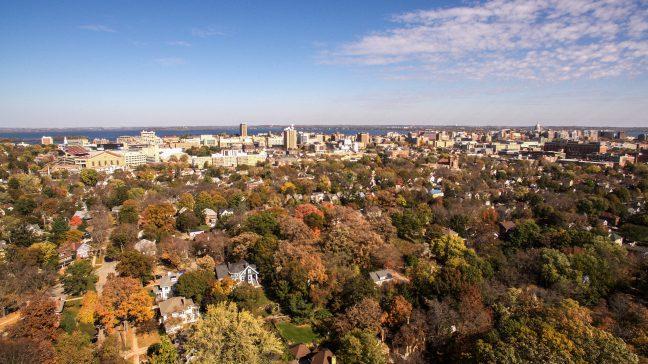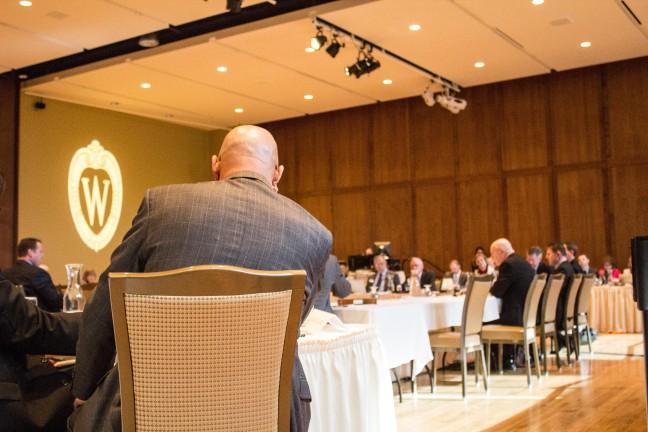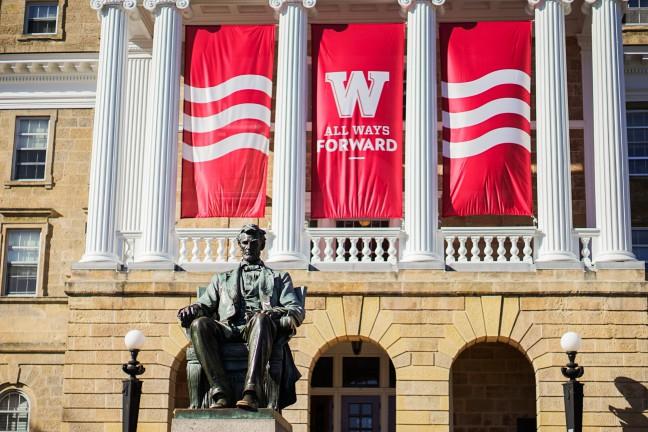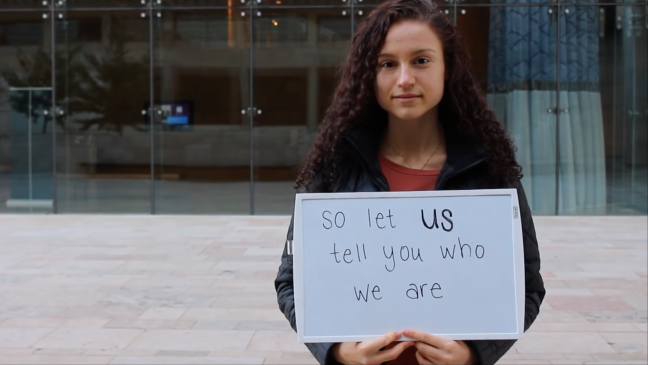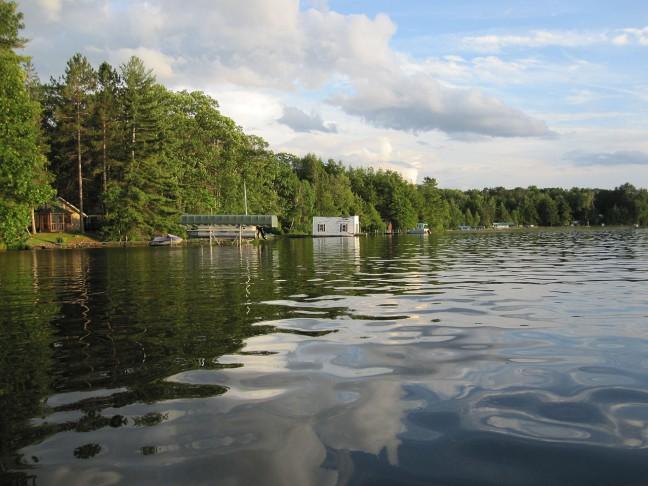The Badger Herald’s editorial board drafted nine questions it believes are important for the four finalists for the University of Wisconsin’s chancellor finalists to answer. All four candidates responded to our request. Below are answers from Nicholas P. Jones, a candidate from Johns Hopkins University.
Each candidate’s response has been edited for clarity and style.
1. How has your previous work experience prepared you for this position?
I have had leadership roles in both public and private institutions for almost 14 years. During that period, I have had the opportunity to guide my department or school to respond to emerging opportunities, and have also dealt with many challenges, including financial ones. The current challenges that face UW are not dissimilar from those I have previously experienced at Hopkins and at Illinois. Developing creative, strategic approaches to those challenges and turning them into opportunities has been fundamental to our advancement. How? By building, trusting, empowering, and supporting a terrific team of people at all levels. While the scale and scope of the institutions may vary, effective empowerment of teams is a practice that works well, and indeed is the only way (in my view) to lead a large and complex institution.
2. How do you plan to handle the possibility of continued political volatility that leads to changes in leadership at City Hall and the Capitol?
One of the critical roles of the chancellor is to manage the university’s external relationships. Developing trust and maintaining positive working relationships with state and local officials is essential. Regular interaction and engagement will be key to achieving this goal. This is not always easy, as the question suggests, but is critical and achievable, and must always be a focus.
3.The university has been immersed in a debate for the last several years about the merits of administrative flexibilities and its role in the University of Wisconsin System. What are your thoughts on this issue? Have you encountered a similar debate at another institution?
I see great opportunity for UW to thrive as an institution in its own right, and to do so by partnering well with other system members in synergistic ways. The role of the UW chancellor is, first and foremost, to champion the development and success of UW in accomplishing its goals and mission as effectively as possible. As a member of a system, though, I would look for opportunities to unleash the collective strength of the system itself to help all, including Madison, advance in ways that they might not be able to do so alone.
4. How would you balance UW’s status as an elite institution while maintaining its socioeconomic accessibility?
I see two related aspects of this issue. We need great students, and we must strive to bring them to the university regardless of means. First, maintaining affordability is essential. Pressure to increase tuition can be lessened by developing alternate revenue sources. I see, for example, tremendous opportunity to work with the University of Wisconsin Foundation to increase philanthropic support, and with [The Wisconsin Alumni Research Foundation] to increase revenues from commercialization of discoveries. Second, it is important that the University reach out beyond its boundaries to ensure that young men and women, especially from Wisconsin, are properly prepared to attend and take advantage of everything this great university has to offer, as well as being able to afford to attend.
5. Previous chancellors of this university have had contentious relations with the Faculty Senate. Assuming that natural tension between Fac Senate and the Chancellor’s office exists, how do you expect to relate with faculty politically?
My answer here Is very similar to my answer to question 3: Developing trust and maintaining positive working relationships with the faculty is essential. They represent an incredible source of intellectual energy for the university and for the chancellor. Here too, regular interaction and engagement will be key to achieving this goal. I believe that I have a good record of developing and embracing such relationships. It’s not just a part of the job; I find it to be a fun, rewarding and energizing part of the job. In a shared governance environment, development of good, productive, trusting relationships with faculty, as well as with staff and students, is crucial.
6. Chancellor Biddy Martin established a significant reputation for UW in China. What strategies would you employ to maintain this global connection, and would you expand our presence to other nations or regions?
UW has a vision, as articulated succinctly through the Wisconsin Idea, and a strategic plan that guides it activities. I’m a big believer that having a well thought out and inclusively developed strategic plan is critically important for any organization, including academic institutions. To that end, any new activities and partnerships in which the institution participates should be in the furtherance of, and contextualized by, the institutional strategy. International partnerships are no exception: They should be developed and embraced to the extent that they support broader institutional goals, and weighed carefully in terms of resource commitment in that context. That said, institutions today certainly need to carefully consider their global presence, and maximize the strategic value of international, as well as other, partnerships.
7. The University of Wisconsin has a history of athletic achievement. What do you see as the role of an athletic department in a university?
I support athletics and their role within the university environment. Programs can add immensely to institutional spirit, as well as to the development of student-athletes, and more broadly the student body. Having been an active participant in team and individual athletic activity all my life, I know how much training, playing and coaching have helped me grow personally. As with all university endeavors, the role of athletics must be balanced and integrated into the broader university environment in an appropriate manner. I believe that UW does this well, and would continue to support that process.
8. Chancellor David Ward’s term has encountered controversy surrounding UW’s business involvement with companies like Adidas and Palermo’s Pizza. What are your thoughts on these disputes, and how do you evaluate Ward’s handling of the matter?
These are complex and nuanced issues, and I simply do not have enough knowledge or information to be able to properly assess them, or Chancellor Ward’s handling of them, and to therefore comment specifically. Dealing with such complex matters requires attention to process and, ultimately, decision. My strong sense of the environment at UW is that process, through respect and embrace of shared governance, is very sound. Ultimately, decisions have to be made in that context, and reasonable people can disagree. Nonetheless, a healthy dialog and exchange should be supported and indeed cherished in an environment like UW: That seems to be alive and well at Madison.
9. At a large university like UW, a schism sometimes forms between scientific research and the liberal arts. What do you think should be the primary focus of UW’s academic mission?
To respond to this question, I borrow from Daniel Coit Gilman, Johns Hopkins’ first president, who noted in his inaugural address establishing the nation’s first research university (this was 1876, so apologies for gender specificity): “The object of the university is to develop character – to make men. It misses its aim if it produced learned pedants, or simple artisans, or cunning sophists, or pretentious practitioners. Its purport is not so much to impart knowledge to the pupils, as whet the appetite, exhibit methods, develop powers, strengthen judgment, and invigorate the intellectual and moral forces.” And further: “But in forming all these plans we must beware lest we are led away from our foundations; lest we make our schools technical instead of liberal; and impart a knowledge of methods rather than of principles. If we make this mistake, we may have an excellent Polytechnicum but not a University.”
I think that Gilman captures well the criticality of a liberal arts core to any great university. Universities are places where discoveries take place. We make discoveries of course in areas such as science and technology. We also must reflect upon and make discoveries about ourselves, and the human condition. It is through the liberal arts that we accomplish these discoveries; without this focus we don’t have a university. Supporting this core is not always easy, in public or private institutions, but it is crucial and must be a priority.








